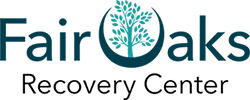An Overview
People who have faced addiction may also have experience with unhealthy relationships. Even when a relationship is toxic, however, it can be a complicated matter to decide if it is time to end the relationship or simply draw clearer boundaries. It isn’t just romantic relationships that can be unhealthy. A family relationship, work connection or friendship can also be toxic. It also isn’t just bad people who can end up in toxic relationships. Sometimes, two otherwise good people create an unhealthy dynamic. While they might be able to change the relationship, sometimes that simply is not possible.
Signs of a Toxic Relationship
Psychology Today shared an article on their blog entitled “51 Signs of an Unhealthy Relationship”. Of the signs from that article, 15 can apply to any relationship, romantic or otherwise, and seem particularly relevant to people who have faced substance abuse.
- The other party won’t take no for an answer.
- Neither of you is any better for knowing the other.
- You can identify ways you’ve made each other worse, particularly in relation to promoting harmful habits.
- They routinely point out ways you are imperfect.
- You feel like they could ditch you at any time.
- They are dismissive of your emotions, especially fear.
- You feel worse about yourself as a person than when you started the relationship.
- They don’t seem interested when you experience success.
- You’re not sure how dependable, supportive, or reliable they would be in a crisis.
- There are times you avoid them, because going to Starbucks or a bar is more relaxing after a stressful day than hanging out with them.
- They are the source of negative surprises.
- You catch them lying repeatedly.
- You worry that they might get so angry they’d hurt you…or they have.
- If you had to rate them on a scale of 1 to 10 on qualities like warmth, trustworthiness, and dependability, you would rate them lower than 5.
- They think you’re lucky to have them, but not the reverse.
Hope for Healing
If only a couple of the statements above are true about a relationship, it might be possible to fix the problem by talking to the person about how their actions have made you feel and setting better boundaries for the future. Therapy may also help. If, however, there are many red flags or talking hasn’t helped, it may be time to let go.
Options for Dealing with Toxic Relationships
When it is not possible to repair an unhealthy relationship, the remaining options may be limited:
- Continue tolerating the harm one is enduring
- Distance oneself from the other person
- End the relationship entirely
Tolerating the Harmful Relationship
Continuing to participate in a toxic relationship is not beneficial to recovery. When a person is trying to break free of addiction, they need to surround themselves with loving, supportive people. If their relationships with friends, family, their significant other, or colleagues cause them to feel constantly torn down, this will leave them with less energy and energy to dedicate to their recovery.
Getting Some Space
Sometimes, even though one party knows the relationship is unhealthy, they don’t feel they can end it entirely. Perhaps the toxic person is a colleague who they cannot avoid without quitting their job, a family member they will still run into at family gatherings, or a friend who is part of a larger social circle.
When this is the case, sometimes the best option is to make some distance. By backing most of the way out of the relationship, there may be fewer opportunities for the parties involved to engage in unhealthy dynamics. They may choose to be polite when they see each other, but not seek out the other person or accept offers to spend time together.
Calling it Quits
There are times when the only viable option is to completely disengage from each other’s lives. When the other person can’t see or admit their own toxicity, there is little hope for improvement.
Where domestic violence is present, the act of separating becomes an especially delicate procedure. Verywellmind.com offers some steps a person can take to reduce the impact of ending a toxic relationship:
- Determine if there is a physical danger. If there is a risk of the other party becoming violent, it may be appropriate to contact the local authorities or the National Domestic Violence Hotline for help.
- It may be prudent to save some money secretly, for the purpose of making a safe escape and a fresh start.
- Document abusive behavior, especially if a restraining order or custody agreement might be needed in the future.
- Get a restraining order, if appropriate.
- Confide in trustworthy people to assist in building a life without an unhealthy relationship.
- Seek out counseling for yourself. A therapist may be able to help you see how you got into a toxic relationship and how to avoid them in the future.
- Find a support group. There may be an online or in-person support group where other people who’ve shared the same experiences can offer wisdom on how to move forward.
- Increase self-care overall. Get plenty of rest. Eat well. Plan a fun trip. In general, keep your life busy with good things.
Healthy Relationships Promote Lasting Recovery
At Fair Oaks Recovery Center, we treat relationships as an important facet of a person’s recovery. We strongly believe in supporting our guests in building the healthiest relationships possible, for the best support system in their ongoing sober journey.



